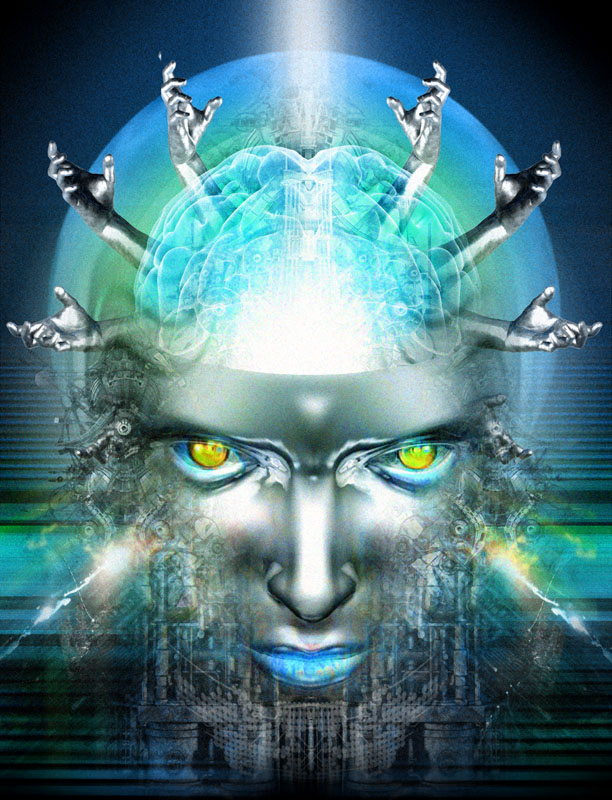- “Many people in AI believe that we’re close to [a computer passing the Turing Test] within the next five years.” So said Eric Schmidt, Google’s executive chairman, speaking at The Aspen Institute last month. The Turing Test, of course, was proposed in 1950 by brilliant computer pioneer Alan Turing as a way to decide whether a machine could be said to think. [source]
- The brain is an incredibly complicated thing, so much so that scientists have spent years trying to decipher its inner workings. IBM is one such institution attempting to crack the code of the human mind. In collaboration with DARPA’s SyNAPSE program, it developed a “neurosynaptic computing chip” back in 2011 designed to simulate some of the brain’s functions and successfully simulated 530 billion neurons last year thanks to the world’s second fastest supercomputer. Today, the company unveiled an important next step in this quest with a new software ecosystem made to program silicon chips that would closely emulate the brain’s low power and compact volume. [source]
- I’m doing a little research on IBM lately. To me it looks like they are wanting to control the populace using very sophisticated technology, linking all our brains together to form a singularity. IBM has a bit of a dirty history with Nazi Germany, they were the ones that developed the Punch Card system, and they knew exactly how Nazi Germany utilised their punch card machine. [please read this earlier post I submitted a while back]
Related articles
- Could Watson pass the Turing Test? (priorprobability.com)
- What if a Computer Passed the Turing Test? (bigthink.com)
- The Turing Test (markgillespie81.wordpress.com)
- The History of the Punch Card (invent.answers.com)
- Angry Birds To Be Used As New Turing Test (33rdsquare.com)



Expect “intelligent agents” — artificial Intelligence (AI) systems equipped with their own sets of beliefs and life goals — to increasingly feature across areas as diverse as logistics, manufacturing, entertainment, gaming, and defence.
That’s the message of veteran AI expert and RMIT research fellow Dr John Thangarajah. According to Dr Thangarajah, while artificial intelligence has been used for some time, an increasing number of application areas now require software components equipped with more sophisticated intelligence — intelligent agents.
“Intelligent agent technology is a particular way of developing software [that] has been used to develop software systems in a variety of application areas, including logistics, crisis management, holonic [flexible] manufacturing, business process management, and unmanned aerial vehicles,” he told ZDNet.
“These applications often require software components that are autonomous, in the sense that they can achieve tasks by making intelligent and rational decisions where necessary without human intervention.”
http://www.zdnet.com/intelligent-agents-putting-the-smart-in-artificial-intelligence-7000019710/
LikeLike
In the never-ending quest to get computers to process, really understand and actually reason, scientists at Defense Advanced Research Projects Agency want to look more deeply into how computers can mimic a key portion of our brain.
The military’s advanced research group recently put out a call, or Request For information, on how it could develop systems that go beyond machine learning, Bayesian techniques, and graphical technology to solve “extraordinarily difficult recognition problems in real-time.”
http://www.networkworld.com/community/blog/darpa-wants-computers-fuse-higher-human-brain-function
LikeLike
Seen this?
UW Researcher Moves Another Human’s Finger with his Thoughts
Tiffany Kaiser – August 28, 2013 8:50 AM
http://www.dailytech.com/UW+Researcher+Moves+Another+Humans+Finger+with+his+Thoughts/article33259c.htm
LikeLike
WOW! And if this sort of thing is being published, what sort of things are happening behind closed doors!?!?!
LikeLike